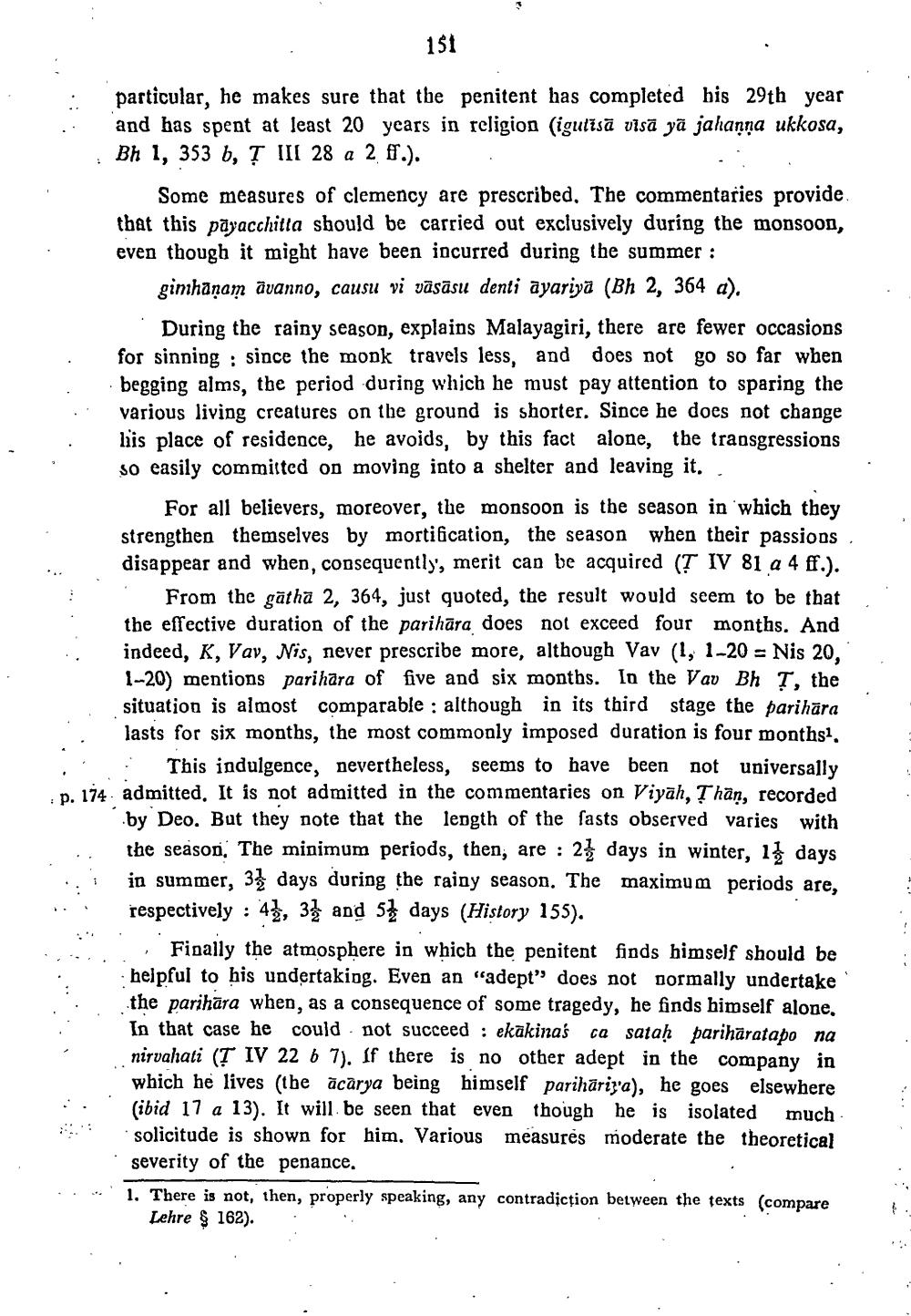________________
151
..
an
particular, he makes sure that the penitent has completed his 29th year and has spent at least 20 years in religion (igulīsā visā ya jahanna ukkosa, Bh 1, 353 b, Ţ III 28 a 2 fr.).
Some measures of clemency are prescribed. The commentaries provide that this pāyacchitla should be carried out exclusively during the monsoon, even though it might have been incurred during the summer :
ginhāņam āvanno, causu vi vāsāsu denti ayariya (Bh 2, 364 a).
During the rainy season, explains Malayagiri, there are fewer occasions for sinning : since the monk travels less, and does not go so far when begging alms, the period during which he must pay attention to sparing the various living creatures on the ground is shorter. Since he does not change his place of residence, he avoids, by this fact alone, the transgressions so easily committed on moving into a shelter and leaving it.
.
For all believers, moreover, the monsoon is the season in which they strengthen themselves by mortification, the season when their passions disappear and when, consequently, merit can be acquired (T IV 81 a 4 ff.).
From the gātha 2, 364, just quoted, the result would seem to be that the effective duration of the parihāra does not exceed four months. And indeed, K, Vav, Nis, never prescribe more, although Vav (1, 1-20 = Nis 20, 1-20) mentions parihara of five and six months. In the Vav Bh T, the situation is almost comparable : although in its third stage the barihära lasts for six months, the most commonly imposed duration is four monthsi.
• This indulgence, nevertheless, seems to have been not universally : p. 174. admitted. It is not admitted in the commentaries on Viyah, Thân, recorded
by Deo. But they note that the length of the fasts observed varies with the season. The minimum periods, then, are : 23 days in winter, 11 days in summer, 33 days during the rainy season. The maximum periods are, respectively : 44, 34 and 57 days (History 155).
Finally the atmosphere in which the penitent finds himself should be helpful to his undertaking. Even an "adept" does not normally undertake the parihara when, as a consequence of some tragedy, he finds himself alone. In that case he could not succeed : ekakinaś ca satah parihāratapo na nirvahati (T IV 22 6 7). If there is no other adept in the company in which he lives (the ācārya being himself parihārija), he goes elsewhere (ibid 17 a 13). It will be seen that even though he is isolated much solicitude is shown for him. Various measures moderate the theoretical
severity of the penance, .. . 1. There is not, then, properly speaking, any contradiction between the texts (compare
Lehre $ 162).




